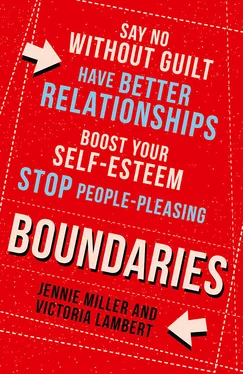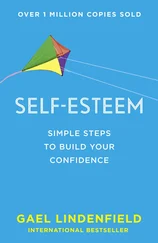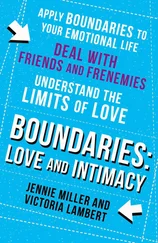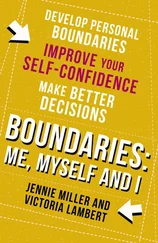Which island would you rather live on? One which is governed by good sense, responsible behaviour and self-care or the other, which has the false attraction of there being no boundaries? This feels like the ultimate freedom, but descends in time to anarchy and survival of the fittest.
EXERCISE: The Debating Table
In this exercise, we are going to show you how to identify their ‘self’. Our inner voice or sense of self is multi-faceted. Everyone has competing thoughts, feelings and beliefs which influence their conscious choices; you will have been accumulating these (often without knowing) since birth. Some we take heed of more than others. This exercise is about learning to listen to your whole ‘self’ before you make a decision – not just the voices that shout loudest.
Picture yourself sitting at a favourite table where you might reasonably have a work discussion or family debate. This could be in a boardroom, a kitchen, or even outside in your garden. You are sitting at the head of the table. This is you at your most composed – you are aware of all that is around you, thinking and feeling with conscious good intent.
As an example, we’re going to explore what would happen in the case of a holiday windfall.
You are handed a piece of paper that says that you have won £1,000 to spend on a holiday but you have to decide where you are going within the next hour or the offer will expire.
As you look up from this piece of paper, the table has become populated with others who feel familiar to you. They sit down on all sides and begin to discuss the offer.
Notice that there is a child at the table bouncing up and down and saying, ‘Can we go to the beach, can we go to the beach?’ You feel an excitement in yourself at this response. When was the last time you went to the sea and had a beach holiday? That would be great, you think.
But then a stern voice coming from an older person than yourself sat at the other side of the table says, ‘Well, that sounds a frivolous waste of money. We should put it to good use and go on a cultural trip – I vote for a coach drive across Europe. Think of all the cities we could pack in.’
As the chair of the discussion, you notice the disappointment of the child whose shoulders droop.
‘Driving for hours? Yuck,’ they retort.
To you, the idea of the drive is appealing and yes, it would be a good use of the money you think, but you notice that you don’t feel as excited as at the beach holiday idea.
The older person is talking again: ‘This is a lot of money and shouldn’t be wasted on a beach holiday, this is for the grown-ups to decide.’
Again, you clock the disappointed expression of the child.
But now you notice another child sat very quietly, hands in their lap, looking around at everyone: ‘Please may I say something?’ they say as they put their hand up. You nod encouragement.
They continue, ‘Well, I would like to go on the drive. I know it would be good for me and make everyone else happy.’ The older one nods with approval and the child goes slightly pink with pleasure at this acknowledgement.
The child who wanted to go to the beach bursts into tears. At their shoulder, another child appears and bangs their fists on the table, shouting, ‘It’s not fair, you never listen to me,’ while glaring at the older person.
A soothing voice floats across the table; another older person has appeared. ‘There, there. We will listen to you but not while you are shouting. I like the idea of both holidays but maybe we could find another solution. This shouldn’t be just for us. Who else can we take? I know that Uncle Theo hasn’t had a holiday for ages, so I vote for a city break near a beach and we take Uncle Theo.’
The quiet child’s response: ‘I agree.’
The shouty child’s response: ‘Yuck, I hate Uncle Theo! He smells.’
The beach child’s response: ‘No, thanks. I still vote for beach.’
The first older person’s response: ‘We will decide what’s best; it’s not a decision for children.’
The second older person’s response: ‘Well, we need to find a solution that’s nice for all of us.’
All eyes turn and look at you. ‘What shall we do?’ they say in unison.
Now, think about what you would do in this scenario. What would be your decision? And who has the loudest voice at your table, because this is a metaphor for you and the different ‘selves’ you are made up from.
Now draw your debating table in your Learning Journal.
Some of these ‘selves’ – happy, demanding, thoughtful, pleasing, controlling – will be more familiar to you than others. Notice that some of the voices – the happy, cross, eager-to-please selves – are like children while the controlling and organising voices remind us of the older people who have influenced us, such as parents, grandparents, teachers, uncles, aunts, nannies, older siblings and anyone in authority. This is because our feelings, thoughts and behaviours are shaped – consciously and unconsciously – when we are children looking to our parents (or those in an influential role). Think about who you have identified as someone who would be around your table.
We’ll be referring to some feelings, thoughts, or behaviours as ‘Child-like’ or ‘Parental’ from now on, and also to those moments when you are being your most authentic self as ‘Adult’. These Adult moments are when you chair meetings at this table and make decisions based on all available evidence presented to you at this time.
Think of this as your personal debating table; the voices are the various aspects of you. None are superior in status whatever they say – all need to be heard.
Draw the Line: a healthy self-boundary means taking all of those voices into consideration, but the Adult makes the decision .
Transactional Analysis
The terms ‘Parent’, ‘Adult’ and ‘Child’ are used in a model of psychotherapy, counselling, education and organisation called Transactional Analysis, which is the basis for the exercises given in this book. You don’t need to study TA to use and benefit from this book but we have included an appendix at the back which goes into the theory in more detail for anyone interested in learning more (see page 289).
And the answer to the holiday dilemma? Your Adult self, with healthy boundaries in place, would book that beach holiday with some culture thrown in and leave Uncle Theo at home. Did you reach this conclusion? And if not, which strong voices led you to another decision? Make a note in your Learning Journal as to which voices you listened to more around the debating table.
Hold your debating table in mind as you work through this book. You will need it when considering other situations and problems.
Let’s Get Started
In this section, let’s look at the self-boundaries (or lack of them) you have and show you how to set new ones. It may feel uncomfortable and even strange to begin with. This is because our heads buzz with decision-making all day long, being pulled between the demands of our inner voices (Parent or Child) we have just introduced you to. Meanwhile, our emotions are also on constant alert, creating feelings which need to be assessed before we respond to them.
Draw the Line: remember that self-boundaries are personal to us – like our own skin – which, in order to be in peak condition, needs care and nourishment. The more confidence you develop in your own decision-making and first-class self-care you give to yourself, the more that your self-boundary (or skin) will glow .
A good example of someone with healthy self-boundaries is Mary Poppins – she is comfortable being ‘practically perfect in every way’ (said without self-deprecation), administers her own medicine without complaint, is charmed by her chimney sweep Bert but not bowled over and knows when to leave the family to care for itself (because her work is done).
Читать дальше












